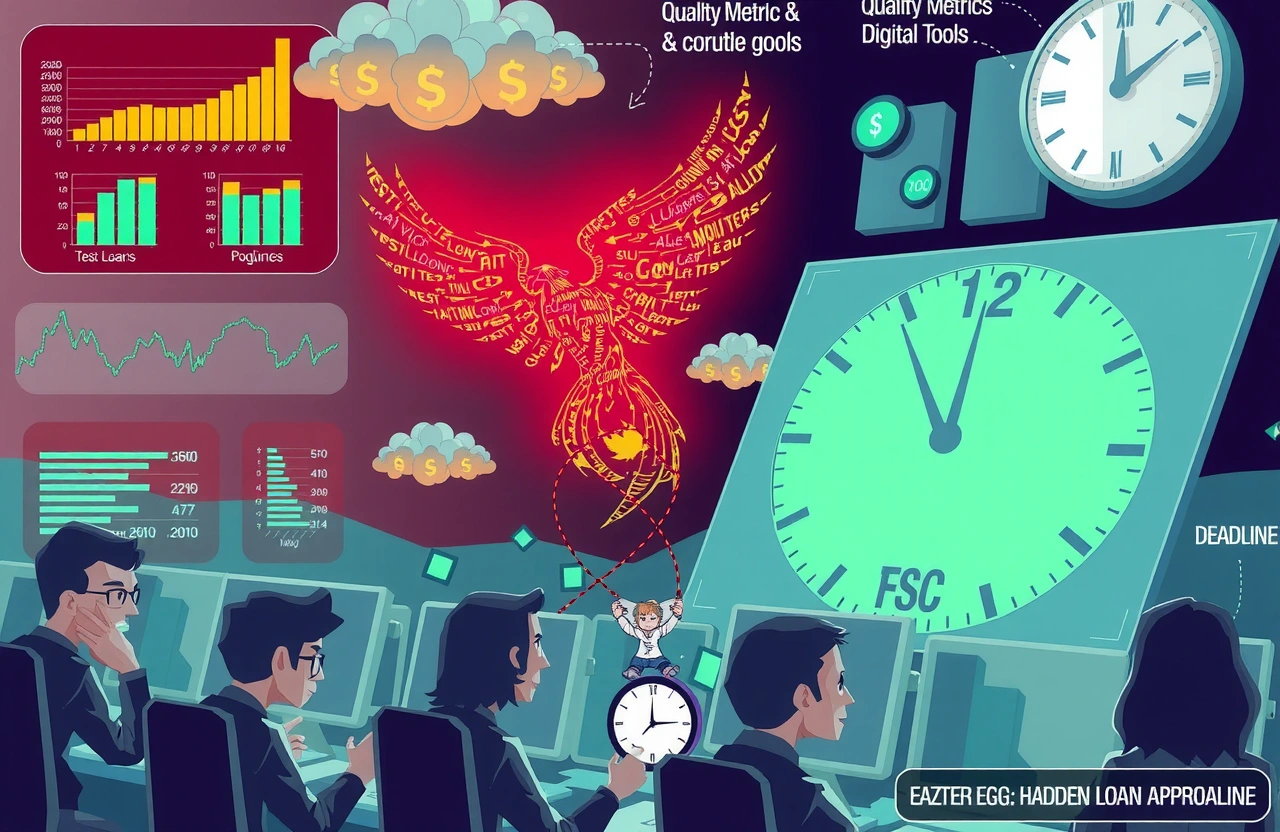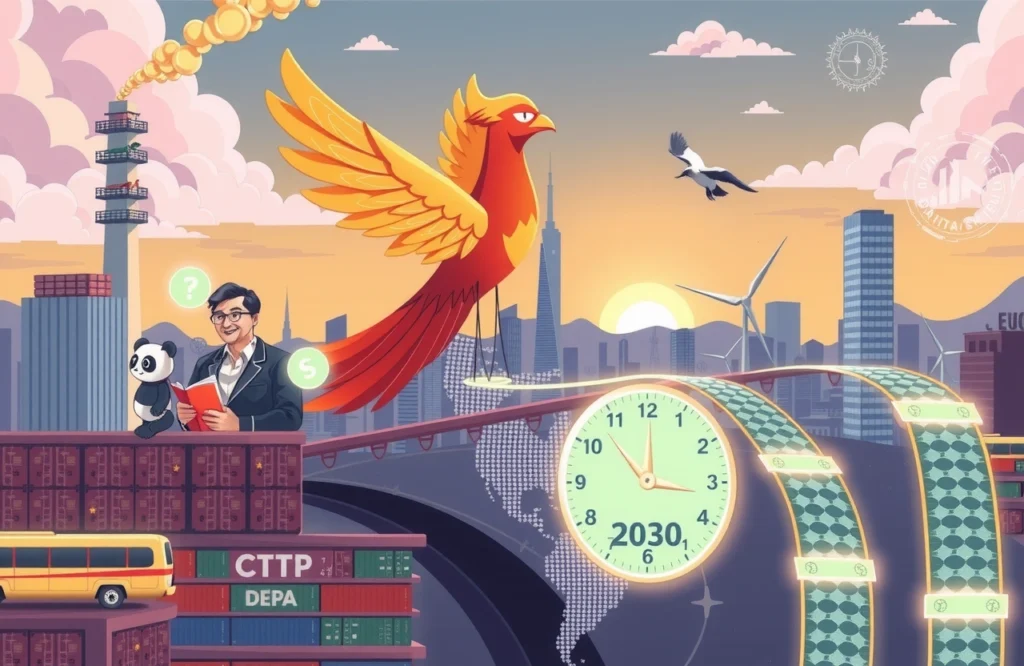The Hidden World of Banking Peer Exchanges
At 10:30 PM on June 30th, Ms. Lin (林女士), an employee at a regional commercial bank in northeast China, urgently contacted a banking peer to exchange loan approval tasks. Her department had unexpectedly assigned an additional consumer loan ‘test quota’ target—requiring applicants to check their eligible loan amounts online—due that night. With family and friends living outside the province and the bank’s geo-restriction requiring local applicants, Ms. Lin turned to this mutual aid solution minutes before the midnight deadline. Across China’s financial institutions, similar peer-to-peer task swaps have become routine survival tactics under crushing performance pressures.
How Consumer Loan Quotas Sparked Mutual Aid Networks
The Midnight Deadline Scenario
Ms. Lin’s predicament illustrates how banks overwhelm staff with sudden targets. Though already completing her Q2 2025 quota, she was ordered to cover an absent colleague’s work. Each test approval earned ¥30 ($4), while actual loan disbursements paid ¥100 ($14)–creating hierarchical pressure points. Such last-minute demands force bankers into desperate peer collaboration, risking professional integrity for basic income protection.
Retail Banking’s Performance Squeeze
Ms. Li (李女士), a retail account manager at a Shenzhen-based joint-stock bank, faced parallel pressure. Needing 10 new-client loan approvals monthly, she posted online five days before quarter-end: “Seeking peers for mutual aid – loan tests or task swaps.” As macroeconomic policies push credit expansion, front-line staff absorb unrealistic metrics. Retail managers like Ms. Li sustain continuous targets unlike temporary departmental assignments.
Mapping the Swap Ecosystem
Social platforms reveal nationwide mutual aid networks with location-specific requests:
– Posts tagged #BankingTaskSwap or #LoanApprovalHelp surface daily
– Participants hail from state-owned banks to rural credit cooperatives
– Test approvals dominate, requiring local participants with existing bank accounts
Beyond Loans: Diverse Pressure Points Forcing Collaboration
Third-Party Payment Bind Tactics
Within her digital banking department, Ms. Lin manages monthly quotas for mobile banking registrations and third-party payment bindings (linking bank accounts to WeChat/Alipay). After exhausting friends/family over a 10-year career, she turned to peer swaps: “I prefer reciprocal exchanges for identical tasks since I understand the workflows. But trust issues plague these arrangements.” Her experience shows widespread bad faith – colleagues often unbind accounts immediately after screenings, voiding recorded completions.
Account Opening Reliability Gaps
Similar deception occurs in pension account/card swaps. One banker specializing in credit cards revealed: “Peers frequently cancel applications after ‘assisting’ – they call customer service claiming changed decisions.” Such attrition forces overcompensation; Ms. Lin reported needing 8-10 exchanges to secure 5 valid bindings when 11/21 tracked links dissolved post-verification.
Decoding the Task-Swap Epidemic’s Roots
Pressure Cooker Performance Systems
According to Xue Hongyan (薛洪言), banking commentator for Jiangsu Business Daily: “Peer collaboration under pressure emerges from systems linking salaries/promotions/job security strictly to numerical targets.” When organic customer outreach fails, mutual aid becomes pseudo-survival strategy. New recruits lacking client bases suffer most – some subsidize approvals personally to avoid zeros.
Costs of Quantity-Obsessed Culture
Wang Pengbo (王蓬博), Broadcom Consulting’s chief finance analyst, identifies flawed incentives as core drivers: “Short assessment cycles punish non-compliance with withheld bonuses or delayed payments.” As one Northern China joint-stock banker admitted: “Uncompleted loans trigger penalties – quarterly performance pay can vanish overnight.” This mutual aid ecosystem ultimately shifts institutional burdens laterally across employees.
Risks When Peer Support Replaces Genuine Growth
Xue Hongyan (薛洪言) warns this mutual aid approach behaves as a double-edged sword:
Data Distortion Dangers
Swapped metrics create false activity signals:
– Volume-based approvals mask actual product weaknesses
– Management misjudges market potential
– Resource allocation skews toward struggling areas
Client Trust & Regulatory Perils
Collaborative pressure encourages unethical conduct:
– Employees promote unnecessary products
– Duplicate/cancelled applications violate compliance
– Phantom loan approvals risk credit overextension
Pathways Toward Sustainable Performance Assessment
Three Expert Prescriptions for Reform
Banking analyst Xue Hongyan (薛洪言) advocates ending quantity-centric models:
1. Quality-Dimension Weighting
Shift focus toward:
– Client engagement duration vs. account openings
– Pension fund retention rates over sign-ups
– Credit card usage frequency not issuance volume
2. Differentiated Benchmarks
Separate metrics for:
– Existing client deepening
– New customer acquisition
Avoid one-size-fits-all targets stretching resources thinly
3. Digital Transformation Support
Implement:
– AI tools tracking authentic outreach patterns
– CRM systems quantifying service quality
– Training resources for skill-based evaluations
Building Banking’s Performance Future
Peer collaboration under pressure reveals systemic fractures. As Wang Pengbo (王蓬博) emphasizes: “Banks must prioritize authentic client needs through employee skill-development scoring and satisfaction metrics.” Reforms demand accountability – executives should eradicate mutual aid temptations via intelligent KPI designs emphasizing sustainable growth. Industry leaders now face urgent choices: perpetuate this pressured mutual aid ecosystem or pioneer transparent assessment frameworks restoring dignity to banking’s front lines. Begin advocating today for responsible performance restructuring within financial institutions.




